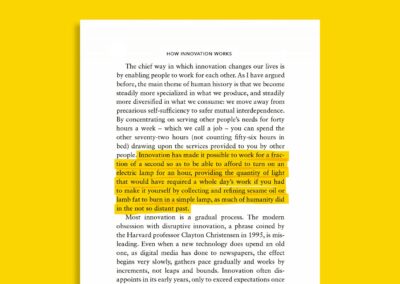Conflict Management: Unraveling the Intricacies of Business Disagreements
In the realm of business, much like the scenario described in the quote, conflicts and disagreements are inherent. The quote, “The other night I ate at a real nice family restaurant. Every table had an argument going,” succinctly captures the essence of managing discord in a seemingly pleasant environment. In this article, we delve into the dynamics of disagreements within the business world, providing insights and strategies for business executives, mid-level managers, and entrepreneurs.
The Art of Change Management: Navigating Business Conflicts
In the business arena, where the winds of change whip up uncertainty, conflicts inevitably dance alongside progress. Leaders equipped with change management strategies become skilled navigators, guiding organizations through choppy waters and ensuring smooth transitions. These strategies act as shields against disruption, preventing internal disagreements from torpedoing the overall harmony of the organization.
But how do these strategies operate? Imagine a complex ship traversing turbulent seas. Change management acts as the captain, expertly charting the course and anticipating potential storms. Here’s how:
Clear communication: The captain broadcasts the “why” and “how” of change, ensuring everyone understands the journey and its destination. This transparency fosters trust and reduces confusion, minimizing fertile ground for conflict.
Active listening: The captain lends an ear to crew concerns, anxieties, and differing perspectives. By acknowledging these voices and addressing them openly, conflicts can be diffused before they escalate.
Collaborative problem-solving: Rather than dictating solutions, the captain invites the crew to participate in finding solutions. This empowers individuals, fosters ownership of the change, and builds bridges across potential divides.
Empathy and understanding: Recognizing that change can be unsettling, the captain leads with empathy, addressing fears and concerns with compassion. This builds trust and paves the way for constructive dialogue.
Remember, navigating change isn’t just about avoiding conflict; it’s about harnessing its potential for positive growth. By embracing these strategies, leaders can transform disagreements into opportunities for collaboration, innovation, and ultimately, a stronger, more unified organization.
Executive Coaching Services: Guiding Through Turbulent Waters
Executive coaching services emerge as valuable resources in times of disagreement. Much like a guiding force, coaches assist leaders in developing effective communication and conflict resolution skills, fostering a healthy organizational culture.
Effective Communication: Bridging Divides for Business Success
Effective communication serves as the cornerstone for resolving conflicts. Leaders must master the art of conveying their messages clearly while actively listening to the concerns of others. This open dialogue creates a bridge for understanding and collaboration.
Project Management: Orchestrating Unity
Project management, a critical function in business, involves orchestrating tasks and team efforts. Like a well-conducted orchestra, effective project management ensures that despite individual differences, the collective performance is harmonious and successful.
Generative Artificial Intelligence: Enhancing Decision-Making
Generative Artificial Intelligence (GAI) can be harnessed to analyze data and suggest optimal conflict resolution strategies. Leaders can leverage technology to make informed decisions and mitigate disagreements based on data-driven insights.
Business News Updates: Staying Informed Amidst Discord
Keeping abreast of business news updates is essential in understanding industry trends and potential sources of conflicts. Informed leaders are better equipped to navigate challenges, fostering a proactive approach to dispute resolution.
Leadership and Management Skills: Navigating Choppy Waters
The quote emphasizes that every table in the family restaurant had an argument going, highlighting the ubiquity of disagreements. Business leaders must possess the following skills to navigate through these metaphorical stormy waters:
Adaptability:
Leaders must be adaptable, recognizing that conflicts are part of the business landscape. An ability to adapt to different perspectives and find common ground is key to successful conflict resolution.
Emotional Intelligence:
Emotional intelligence allows leaders to understand and manage their emotions and those of others. This skill is invaluable in defusing tense situations and fostering a positive working environment.
Decision-Making:
Effective decision-making is crucial during disagreements. Leaders must make informed and timely decisions that contribute to the resolution of conflicts rather than exacerbating them.
Conclusion: Harmonizing Business Success Amidst Disagreements
In conclusion, the quote about a family restaurant with arguments at every table resonates with the reality of disagreements in the business world. However, conflicts need not disrupt the overall harmony of an organization. By employing effective conflict management strategies, embracing change, and honing leadership skills, business executives, mid-level managers, and entrepreneurs can harmonize success amidst the inevitable disagreements that arise.
#HarmonyInDisagreement #ConflictResolution #BusinessSuccess























